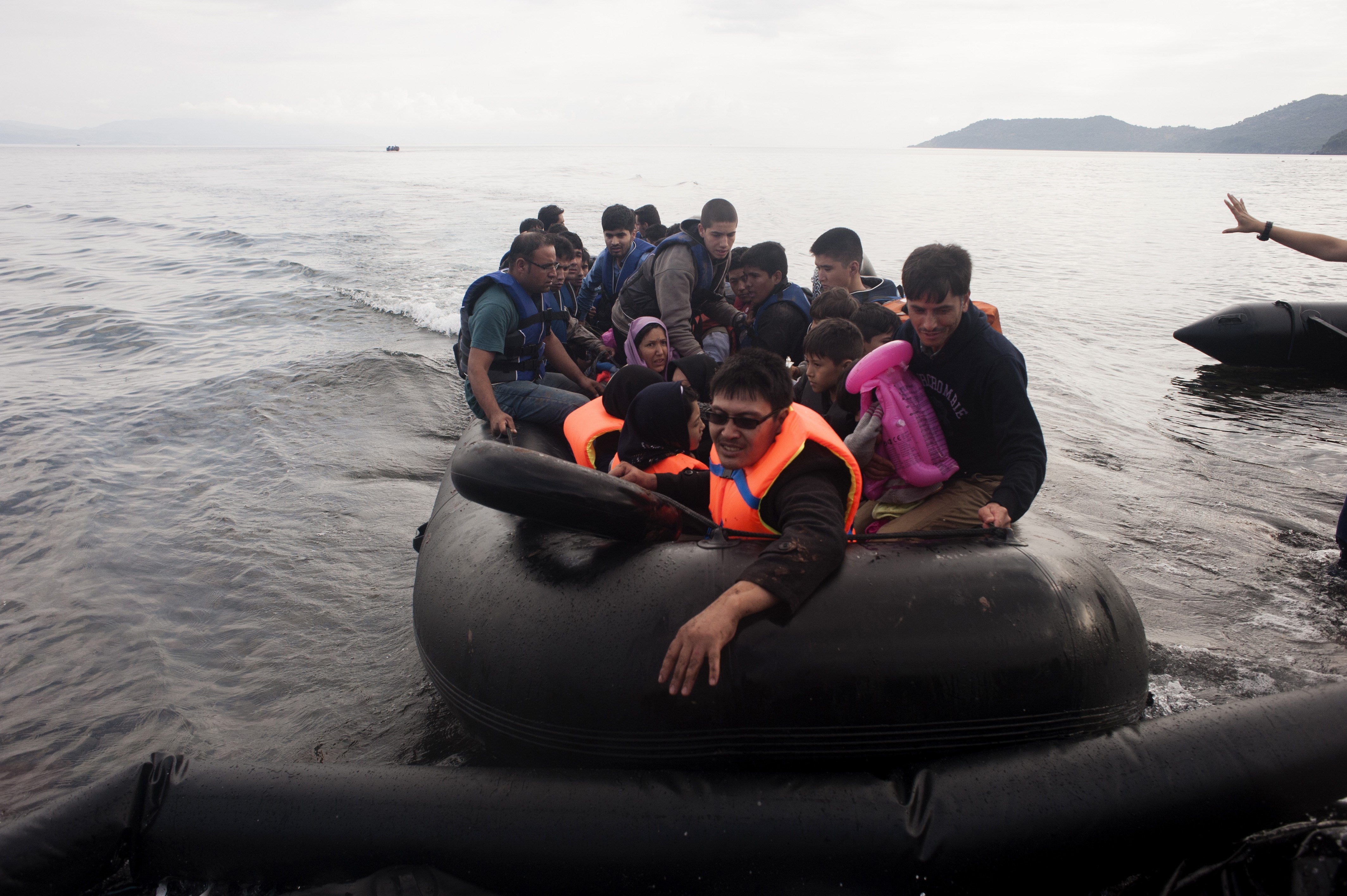Refugee crisis: Europe looks to charm Turkey's Erdogan in bid to staunch flow across borders
The move comes despite recent EU admonishments for the Turkish leader over his authoritarianism and recent attacks on Kurdish positions

Your support helps us to tell the story
From reproductive rights to climate change to Big Tech, The Independent is on the ground when the story is developing. Whether it's investigating the financials of Elon Musk's pro-Trump PAC or producing our latest documentary, 'The A Word', which shines a light on the American women fighting for reproductive rights, we know how important it is to parse out the facts from the messaging.
At such a critical moment in US history, we need reporters on the ground. Your donation allows us to keep sending journalists to speak to both sides of the story.
The Independent is trusted by Americans across the entire political spectrum. And unlike many other quality news outlets, we choose not to lock Americans out of our reporting and analysis with paywalls. We believe quality journalism should be available to everyone, paid for by those who can afford it.
Your support makes all the difference.English European Union leaders will attempt to charm Turkish Prime Minister Recep Tayyip Erdogan today at a Brussels summit, as they seek his help to staunch the flow of Syrian refugees to Europe.
With Turkey currently hosting nearly two million Syrian refugees, the EU wants Erdogan to prevent them heading west, exacerbating a migration crisis that is already testing the limits of European solidarity.
However, the EU is wary of embracing Erdogan too tightly, having already admonished him for his authoritarianism and his recent attacks on Kurdish positions during the allied campaign against Isis.
The visit comes at a critical time for Erdogan, ahead of the 1 November Turkish elections and the November G20 Summit in the southern Turkish city of Antalya.
The summit will gather Erdogan with the presidents of the three main EU bodies: the European Council’s Donald Tusk, the European Commission’s Jean-Claude Juncker, and the European Parliament’s Martin Schulz.
They will ask him to do more to stop the boats crossing the narrow sea lanes between Turkey's Aegean coast and the Greek islands where thousands of refugees pass daily, notably through tougher action against the people smugglers roaming freely around Turkey. It also wants to set up "hotspots" to process asylum seekers on Turkish soil.
Erdogan has been dismissive of the recent EU convulsions over the influx of refugees, pointing out that the estimated 500,000 who have arrived in Europe so far this year pales in comparison with two million Syrians he is hosting, of whom around 15 per cent are in state-run camps. Last month he accused the EU of turning the Mediterranean into a "cemetery". He has since toned down his rhetoric: he told parliament last week that he wanted to open a "new page", and that Ankara still wanted to join the EU despite the hostility from key European governments.
In exchange for keeping the refugees on Turkish soil, the EU is offering some €1 billion in aid to improve the conditions in the Turkish refugee camps, so people have less incentive to leave. But the Turkish government has indicated it is not interested in the money, pointing out that it has already spent nearly €7 billion looking after Syrian refugees.
Instead, Erdogan is seeking visa-free travel for Turks in the EU, and designation as a “safe country of origin” for any refugees being returned – in spite of European concerns that the growing campaign against Kurds makes Turkey less safe for some.
Even more controversial are Turkey’s proposals for a safe zone to be set up along the border in northern Syria where Isis fighters would be cleared and refugees could be resettled. EU governments suspect this is less about resolving a humanitarian crisis and more about crushing the Kurds, who are also battling Isis. There is already widespread dismay in Europe that since joining the alliance against Isis in July, Turkey has focused its attention instead on bombing Kurdish positions.
The issue is further complicated by Russia’s direct entry into the Syrian theatre last week. Like Turkey, Russia seems to be largely ignoring Isis - Moscow’s main targets are the opponents of its ally, Syrian President Bashar al-Assad – while potentially making the region even more volatile.
Erdogan, who arrives in Brussels tonight, has packed two-day official schedule that includes meeting Belgium’s King Philippe and ends with the opening of the Europalia International Arts Festival devoted to Turkey at the Brussels Centre for Fine Arts.
However, his plan to use an 18,000-capacity arena for a political rally for Belgian-Turks has been scrapped after the mayor of Brussels denied him permission. Ethnic Turks represent a powerful constituency for Erdogan: around 200,000 currently live in Belgium, three-quarters of whom now have Belgian nationality.
The Union of European Turkish Democrats, the European branch of Erdogan’s AKP party, tried to hire the hall on the former World Expo site in the Heysel district. But Brussels Mayor Yvan Mayeur blocked the move, saying the arena was for concerts and shows only.
Join our commenting forum
Join thought-provoking conversations, follow other Independent readers and see their replies
Comments